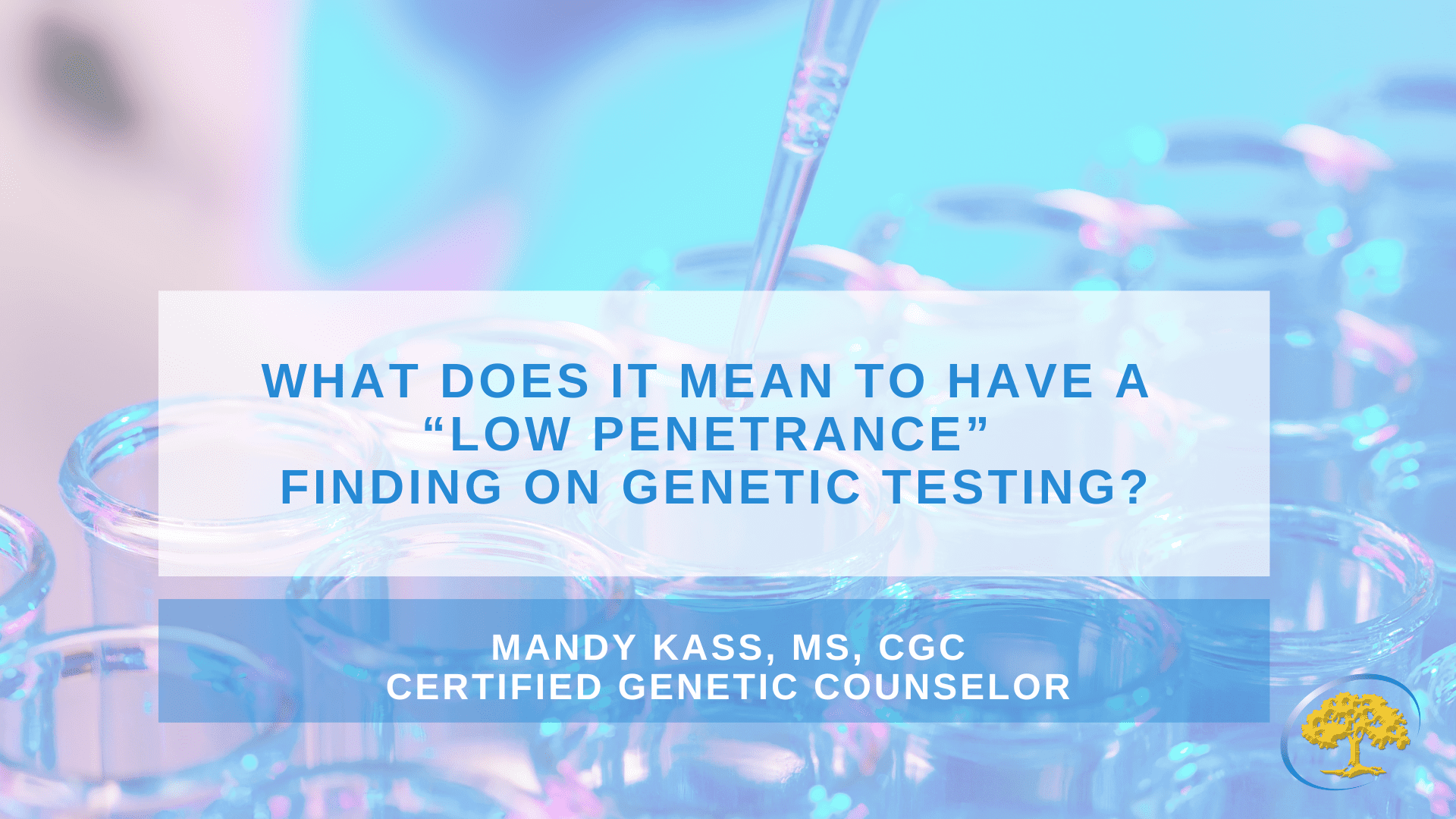
Posted 2 years ago
What Does it Mean to Have a “Low Penetrance” Finding on Genetic Testing?
Have you ever received a positive genetic test result and thought it was going to be straightforward until you see the word “low penetrance” next to it? Now you’re wondering what low penetrance means. When penetrance is talked about in relation to cancer genetics, it describes how likely someone is to develop the type of cancer that a genetic mutation predisposes them to – if a mutation leads to someone being born with an increased risk for breast cancer, then penetrance is how likely that person is to actually develop breast cancer in their lifetime. Low penetrance mutation means that someone is less likely or has a mild risk to develop cancer compared to other mutations in the same gene. In some breast cancer genes such as CHEK2, there are specific mutations that are considered low penetrance compared to other mutations in the same gene. Thus, if you have a low penetrance mutation in CHEK2, then there is a lower or more mild risk to develop breast cancer compared to some other CHEK2 mutations.
But why does penetrance matter? While some breast cancer mutations lead to recommendations for annual breast MRI and mammogram screenings or a preventative mastectomy, not all mutations result in the same recommendations. For example, low penetrance mutations would likely not lead to a recommendation for a preventative mastectomy due to the milder risk for cancer compared to other mutations. This also applies to changes in screening management – if it’s a low penetrance mutation, then there may not need to be changes made to someone’s breast cancer screening management. Thus, it’s important to know if the variant is low penetrance to know how to best tailor care to the patient based on their genetic results and their personal and family history of cancer.
If you have questions about your genetic testing results, consider speaking to your Ironwood provider about a referral to a genetic counselor.
Mandy Kass, MS, CGC
Genetic Services Department
As a certified oncology genetic counselor, Mandy works with patients who have a personal and/or family history of cancer to assess their risk of having an inherited cancer predisposition. This information allows for the pursuit of early detection or possibly prevention of certain cancer types.
The ultimate goal of cancer genetic counseling is to empower patients to use their personal risk information to better inform treatment and management decisions and to educate family members on their possible cancer risks.

